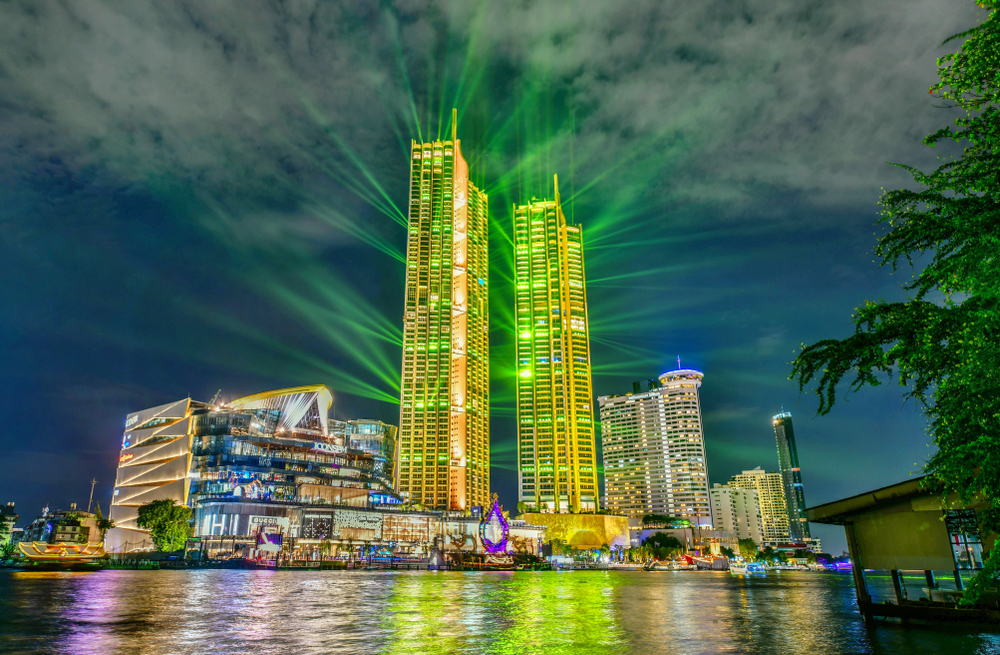How Thai developers can cope with rising land costs
For development firms increasingly priced out of the city’s land, diversifying beyond single-use projects, on lots that are not necessarily freehold, is apparently the way to go

Freehold prime land is pricier than ever in Bangkok, and property development firms have been deftly changing tack with regards to their expansion strategies.
On one hand are developers securing leasehold land that gives them wherewithal to bring about mixed-use and non-residential projects. Others are forging ahead with prime land acquisitions, but with an eye toward eschewing single-use developments entirely.
“Ever-increasing land prices driven by growing scarcity of prime land for sale have made it less and less feasible to develop rental property on freehold prime land in Bangkok,” said JLL Thailand managing director Suphin Mechuchep.
“This explains the growing trend of developers securing leasehold land for non-residential development projects such as hotels, serviced apartments, office buildings and retail centres or mixed-use developments.”
Leasehold land enables developers to pay rents over the duration of the lease period, as opposed to upfront. This arrangement, in turn, empowers such firms to run better cashflow management strategies and wrest strong returns on investments.
More: Thai properties thrive on growing tourist numbers, infrastructure projects
“For some developers, this has required additional investment in assets that provide stable income streams such as hotels and serviced apartments,” said Suphin. “As developers can retain ownership over these final products, they are able to maintain an ongoing stream of income.”
The option to sell in to a real estate investment trust (REIT) makes leasehold properties even more viable for developers, Suphin added.
As for developers with existing freehold land banks across the Thai capital, mixed-use projects are best positioned to bring about land use synergies.
“Combining multiple uses within a single development allow developers to share common resources within the overall development, lowering development costs and maximising the use of land,” Suphin said.
Best Mixed-Use Development is likely to be one of the most competitive categories in this year’s PropertyGuru Thailand Property Awards, whose judging panel Suphin is chairing.
The city’s largest mixed-use project yet, the 1.83-million-square-metre One Bangkok development, will complete its first phase by 2023.
Dusit Thani and CPN have joined forces on Dusit Central Park, a 444,000-square-metre project with retail, hotel, residential, and office spaces, for completion in 2024.
More: Solving the play equity gap in Thailand, one property development at a time
Mixed-use developments are not just multi-building projects but also standalone structures with a mix of uses, Suphin noted. A prime example is King Power MahaNakhon, one of Southeast Asia’s tallest skyscrapers, with its myriad residential, retail and hotel components.
Average land prices in Bangkok rose 12.5 percent per year from 2015 through 2018, up from seven to eight percent in previous periods tracked, according to CBRE Thailand.
What mixed-use developments will clinch the 2019 PropertyGuru Thailand Property Awards? Entry submissions to this year’s prizes close on 21 June. Find more details here: www.asiapropertyawards.com/award/thailand-property-awards
Recommended
Why everyone is moving to Selangor and Johor: Malaysia’s real estate comeback
Malaysia’s upturn in fortunes is especially prevalent in secondary destinations such as Selangor and Johor
Penang’s silicon boom: How the US-China tech war is supercharging local real estate
Penang’s booming semiconductor industry has created ripples within the local real estate sector
New leader, new opportunities: How Hun Manet is shaking up Cambodia’s real estate game
Hun Manet is overseeing decent economic growth and widening access to the country’s real estate market for foreigners
Singapore embraces inclusive housing reforms amid resilient demand
The Lion City’s regulatory strength continues to exert appeal for international investors








